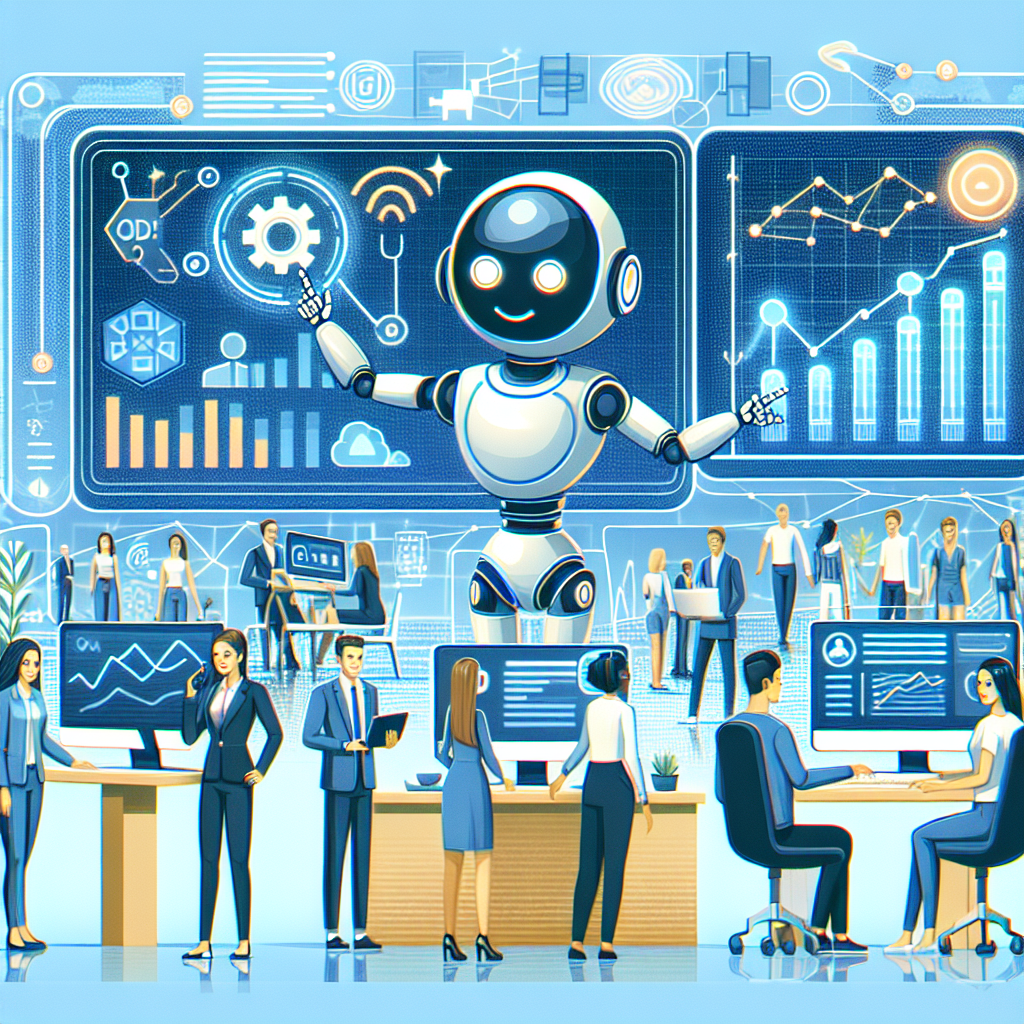AI Customer Service Trends: What to Expect in the Coming Years
Artificial Intelligence (AI) has revolutionized the way businesses interact with customers, providing faster, more efficient, and personalized service. As technology continues to advance, it’s essential to stay ahead of the curve and understand the trends shaping the future of AI customer service. In this article, we’ll explore what to expect in the coming years and how businesses can leverage AI to enhance customer experiences.
1. Increased Automation
One of the most prominent trends in AI customer service is increased automation. As AI systems become more sophisticated, they can handle a wider range of customer inquiries, freeing up human agents to focus on more complex issues. Automation can streamline processes, reduce response times, and improve efficiency, ultimately leading to better customer satisfaction.
In the coming years, we can expect to see even greater automation in customer service, with AI handling routine tasks such as answering basic inquiries, processing orders, and providing product recommendations. This shift will not only improve the customer experience but also help businesses save time and resources.
2. Personalized Experiences
AI technologies such as machine learning and natural language processing have made it possible to deliver highly personalized customer experiences. By analyzing data from past interactions, AI can tailor responses to individual preferences, anticipate customer needs, and provide relevant recommendations.
In the future, we can expect AI to play an even greater role in personalizing customer experiences. Businesses will use AI to segment customers based on their behavior and preferences, deliver targeted messages, and create customized offers. This personalized approach will help businesses build stronger relationships with customers and drive loyalty.
3. Multichannel Support
Customers today expect to interact with businesses across multiple channels, including phone, email, chat, social media, and more. AI technologies can help businesses provide seamless multichannel support, allowing customers to communicate through their preferred channel and receive consistent service.
In the coming years, we can expect to see AI customer service solutions that integrate with a wide range of communication channels. Businesses will use AI to automatically route inquiries to the appropriate channel, track customer interactions across channels, and provide a unified view of the customer journey. This multichannel approach will help businesses deliver a more cohesive and personalized customer experience.
4. Self-Service Options
AI-powered self-service options have become increasingly popular in customer service, allowing customers to find answers to their questions and resolve issues on their own. Chatbots, virtual assistants, and knowledge bases are just a few examples of self-service options that businesses can implement to improve customer satisfaction and reduce support costs.
In the future, we can expect to see more advanced self-service options powered by AI. Businesses will use AI to create intelligent self-service portals that can understand natural language queries, provide accurate responses, and guide customers through complex processes. These self-service options will empower customers to find solutions quickly and easily, improving their overall experience.
5. Enhanced Data Analytics
AI technologies can analyze vast amounts of data in real-time, providing businesses with valuable insights into customer behavior, preferences, and trends. By leveraging data analytics, businesses can identify patterns, predict customer needs, and make informed decisions to improve customer service.
In the coming years, we can expect to see more advanced data analytics capabilities in AI customer service solutions. Businesses will use AI to analyze customer interactions across channels, track sentiment, and identify opportunities for improvement. This data-driven approach will enable businesses to deliver more personalized and effective customer service.
FAQs
Q: Will AI replace human customer service agents?
A: While AI can handle routine tasks and inquiries, human agents will continue to play a crucial role in customer service. AI can augment human agents by providing support, automating processes, and personalizing experiences, ultimately improving the overall customer experience.
Q: How can businesses implement AI customer service solutions?
A: Businesses can implement AI customer service solutions by partnering with technology providers, developing in-house AI capabilities, or using third-party platforms. It’s essential to assess business needs, choose the right technology, and train employees to leverage AI effectively.
Q: What are the benefits of AI customer service?
A: AI customer service offers numerous benefits, including increased efficiency, faster response times, personalized experiences, multichannel support, and enhanced data analytics. By leveraging AI, businesses can improve customer satisfaction, drive loyalty, and gain a competitive edge in the market.
In conclusion, AI customer service trends are shaping the future of customer interactions, providing businesses with innovative ways to enhance customer experiences. By embracing automation, personalization, multichannel support, self-service options, and data analytics, businesses can stay ahead of the curve and deliver exceptional customer service in the coming years. As technology continues to advance, it’s essential for businesses to adapt and leverage AI to meet evolving customer expectations.

